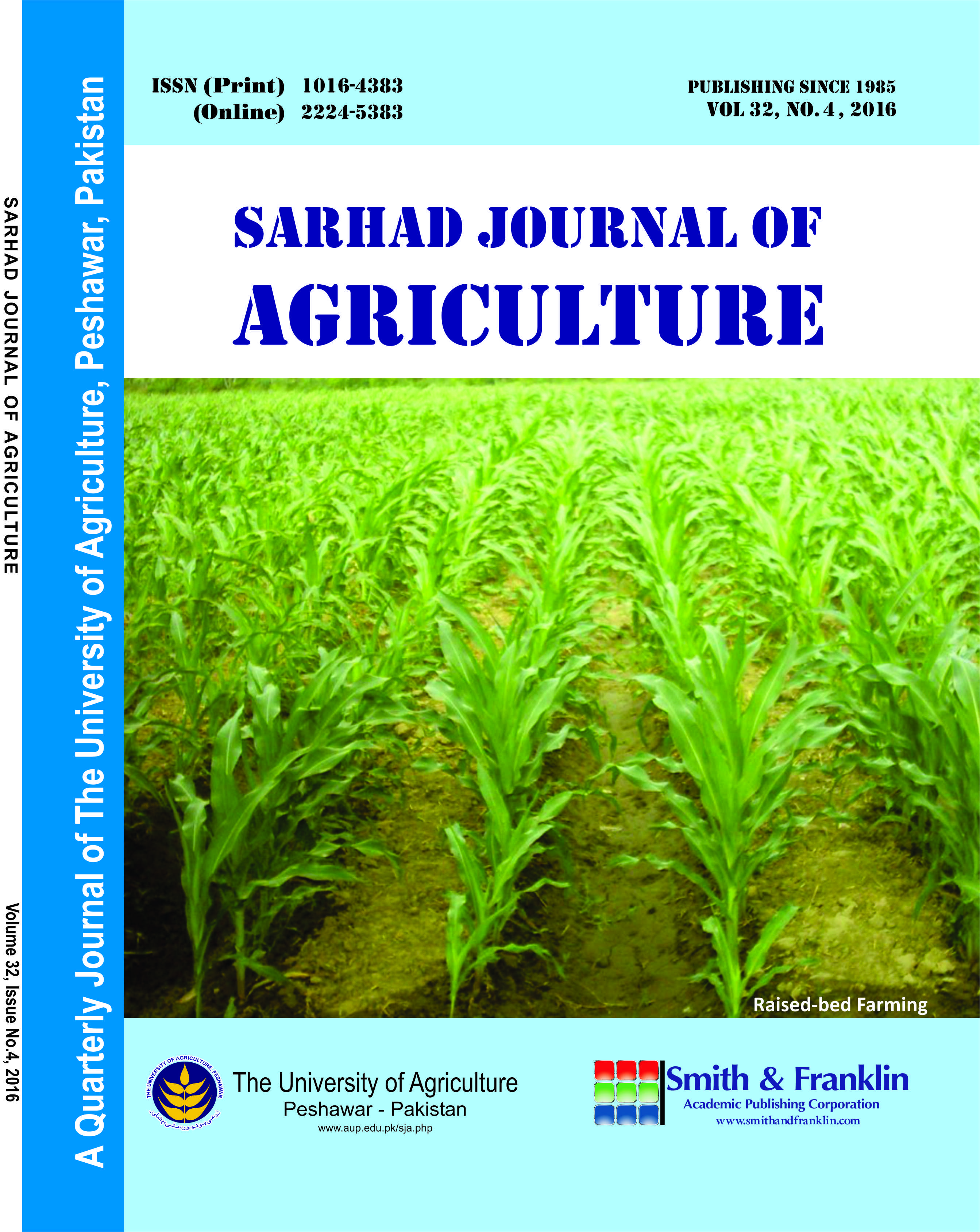The Role of Cyanobacteria in Availability of Major Plant Nutrients and Soil Organic Matter to Rice Crop under Saline Soil Condition
The Role of Cyanobacteria in Availability of Major Plant Nutrients and Soil Organic Matter to Rice Crop under Saline Soil Condition
Zakirullah Jan1, Shamsher Ali1*, Tariq Sultan2, Wasiullah1 and Wiqar Ahmad1
ABSTRACT
A pot experiment in pots was conducted with the aim to assess the role of different strains of cyanobacteria in improvement of some major plant nutrients and soil organic matter content (SOM) under saline soil and yield of rice crop at National Agricultural Research Center (NARC) Islamabad during summer 2016. Pots were induced with salinity of 7.0 dS m-1 and arranged in Completely Randomized Design (CRD) with three replications. Six treatments consisted of a control (no strains) and 5 different strains of cyanobacteria i.e Oscillatory-MMF-1 (Oscillatoria princeps), Leptolyngbaya-MMF-2 (Lyngbya mucicola), Leptolyngbaya- MMF-3 (Lyngbya Phormidium), Gloeobacter-MMF-4 (Gloeocapsa) and Microcoleus-MMF-5 (Cryophilus) were applied randomly to flooded rice in pots. Rice seedlings were transplanted to each pot on July 18, 2016. The data were recorded on agronomic parameters of rice crop, plant tissue and post-harvest soil analysis. But in this paper, data on availability of major plant nutrients, soil organic matter and plant dry weight are presented. The data revealed that cyanobacteria strains had significantly (p < 0.05) increased the availability of major plant nutrients and SOM under the saline soil conditions. Among the strains, Gloeobacter MMF-4 significantly increased the soil organic matter (SOM), nitrogen (N), phosphorus (P), potassium (K), calcium (Ca), magnesium (Mg) and plant dry weight. Results showed that soil organic matter content improved from 1 to 5.2 g kg-1, NO3-N from 1.96 to 3.53 mg kg-1, P from 1.87 to 2.79 mg kg-1 and K from 273 to 296 mg kg-1 in treatment where MMF-4 Gloeobacter strain was applied. It was concluded that all cyanobacteria strains increased the soil fertility status in the saline soils but Gloeobacter-MMF-4 (Gloeocapsa) strain was most efficient as compared to other strains.
To share on other social networks, click on any share button. What are these?







